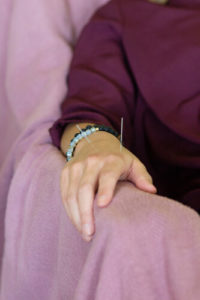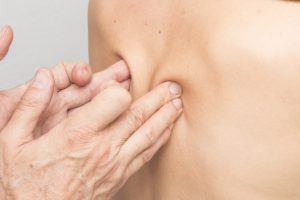- WE MOVED !!!
-
 Professional Acupuncture & Physical Therapy1118 East Superior Street
Professional Acupuncture & Physical Therapy1118 East Superior Street
Duluth, MN 55802(218) 724-3400 Clinic Hours
Mon8:00 am - 4:30 pmTue1:45 pm - 4:30 pmWed8:00 am - 4:30 pmThu8:00 am - 4:30 pmFriCLOSED

- Long Covid Booklet
Traditional Chinese Medicine
Research Review: Acupuncture for Back Pain
 Back pain is one of the most expensive and exhausting ailments of our time. It’s the 6th most costly condition in the United States, costing Americans at least 50 billion in health care costs each year (let alone the cost of missed work due to disability). It is the third most common reason for a visit to the doctors office (behind skin disorders and osteo-arthritis joint issues). For Acupuncturists, it is the #1 reason people show up at their door.
Back pain is one of the most expensive and exhausting ailments of our time. It’s the 6th most costly condition in the United States, costing Americans at least 50 billion in health care costs each year (let alone the cost of missed work due to disability). It is the third most common reason for a visit to the doctors office (behind skin disorders and osteo-arthritis joint issues). For Acupuncturists, it is the #1 reason people show up at their door.
So does it really work? For those that turn to acupuncture, they can rest assured they are increasing their odds of finding relief. Acupuncture has been found to be effective for chronic pain, including low back pain. Not only is acupuncture more clinically effective than no treatment at short-term follow-ups that looked at measures of pain relief and functional improvement acupuncture was actually found to be substantially better than standard care in a meta-analysis of randomized controlled trials that included around 20,000 patients with chronic musculoskeletal pain.
Acupuncture is also safe. In a cumulative review of more than 1 million acupuncture treatments, the risk of a serious adverse event with acupuncture was estimated to be 0.05 per 10,000 treatments and 0.55 per 10,000 individual patients. Most common side effects were minor, and included bleeding at the needle site and localized needling pain.
 So how does sticking needles in the various points in the body actually help to alleviate back pain? The explanation according to Acupuncture theory involves the movement of stuck energy (qi) and blood in the body. Points along various energy channels are used to open pathways and redirect ‘traffic’ to promote a healthy flow of qi and blood. Western biomedical research looks at acupuncture effects on the nervous, immune and endocrine systems. It has been shown that the stimulation with acupuncture needles produces an analgesic effect through the release of endorphins, dopamine, endogenous cannabinoids (some of the body’s natural pain-killers) and anti-inflammatory substances as well as the inhibition of pro-inflammatory factors.
So how does sticking needles in the various points in the body actually help to alleviate back pain? The explanation according to Acupuncture theory involves the movement of stuck energy (qi) and blood in the body. Points along various energy channels are used to open pathways and redirect ‘traffic’ to promote a healthy flow of qi and blood. Western biomedical research looks at acupuncture effects on the nervous, immune and endocrine systems. It has been shown that the stimulation with acupuncture needles produces an analgesic effect through the release of endorphins, dopamine, endogenous cannabinoids (some of the body’s natural pain-killers) and anti-inflammatory substances as well as the inhibition of pro-inflammatory factors.
And does it last? The beneficial effects of acupuncture do, in fact. persist beyond the course of treatment. In a meta-analysis of around 18,000 patients with chronic pain, 90% of the pain-relieving effects were maintained at 1 year out.
As far as cost-effectiveness, acupuncture scores again. In one study in Canada, low back pain patients divided into 2 groups (201 patients receiving acupuncture and 804 patients not receiving acupuncture) were evaluated for the number of medical doctor visits required for treatment of their low back pain. The acupuncture patients saw their doctors 49% less after having acupuncture compared with the year prior to having acupuncture. Non-acupuncture patients had a decrease of only 2%. The WHO officially classifies acupuncture as a cost-effective treatment strategy in patients with chronic low back pain, according to their cost-effectiveness threshold values.
Back pain, as many of us have experienced, can be an expensive threat to our quality of life. Depending on the cause and severity of the back pain, acupuncture can be a safe and cost-effective alternative or complementary approach to treatment, providing much needed relief!
If you are one of the many people suffering with back pain, don’t hesitate to get in for some pain-relieving acupuncture sessions. The sooner you get in, the sooner you’ll experience the benefits!
5 Ways to Quickly Alleviate Back Pain
 Back pain is often what leads people to their first Acupuncture experience. It’s one of the most frequent complaints heard by medical professionals in general. 80% of Americans will experience back pain at some point during their lives, and worldwide, back pain is the single leading cause of disability.
Back pain is often what leads people to their first Acupuncture experience. It’s one of the most frequent complaints heard by medical professionals in general. 80% of Americans will experience back pain at some point during their lives, and worldwide, back pain is the single leading cause of disability.
Standard modern day approaches to back pain include physical therapy, pain medication and even surgery when severe, depending on the diagnosis. Acupuncture (just one of the many tools of Chinese Medicine) is a very cost-effective pain-relief option with a low risk of negative side effects. For mild cases, Chinese Medicine offers some self-care tips to try at home.
Rest & Exercise
The proper balance of yin and yang is the central tenet of Chinese Medicine, and when it comes to back pain, either extreme can be a cause. We can develop painful stagnant energy in our bodies from a sedentary lifestyle (extreme yin). On the flip side, we can deplete our yin with too much activity (extreme yang) leaving us susceptible to injury, withered muscles, and brittle bones. Ask yourself where the balance is needed. Sometimes for mild back pain, all that’s needed is a nap or a walk.
Hot & cold
Another way to address the yin/yang balance needed for a strong, pain-free back is with applications of hot and cold. First we need to figure out if the problem is too yang (hot) or too yin (cold). Usually acute issues involve more hot inflammation (yang), in which case a cold pack (frozen peas, anyone?) can be soothing. Whereas with chronic conditions, heat is often more appropriate to open stagnant channels and encourage qi and blood flow for healing.
Acupressure
Certain points on the body help to open the channels of the low back to relieve pain and stagnation. LI 4 (Joining Valley) is located in the fleshy depression just beyond the meeting point of the thumb and first finger bones and strongly stimulates qi and blood flow throughout the body. UB40 (Supporting Middle) is at the midpoint of the crease behind the knee and opens up the main channel that runs along the back. These are great points to massage gently for both chronic and acute back pain.
Topical herbs:
Tiger balm is a popular chinese salve for topical pain relief, but another bathroom cabinet essential is Zheng Gu Shui (Evil Bone Water), an herbal liniment that can be applied directly to the skin of the low back to penetrate with blood moving, pain relieving qualities.
Qi gong
There are great (free!) instructional videos available online that demonstrate specific qi gong exercises that support the low back, such as ‘Knocking on the Door of Life’ and ‘Spinal Chord Breathing’. For beginners, just a basic qi gong stance with some breathing can start to move the stuck qi. Wu Ji posture is thought to help bring the body into proper alignment. With feet shoulder-width apart and relaxed knees, roll your pelvis in, drop the shoulders but spread them open, tuck the chin and imagine the top of the head being pulled upward. Breathe slow, smooth and deep, and empty your mind. Feel your connection to the earth through the soles of your feet where your kidney channel begins at the indent just under the balls of the feet. It can also help to get barefoot in the grass on a sunny day!. Just this practice alone (if done regularly) can also completely change your response to stress, a major factor in pain perception.
These tips can go a long way in alleviating mild back pain, but be sure to book some acupuncture sessions with Heidi to address root causes and give your body even stronger tools for rebalancing and pain relief.
Research Update: Acupuncture for Migraine Relief
 Migraines are ranked the 3rd most common disease in the world, affecting at least 12 % of the world’s population. If you don’t suffer from them, then you most likely know someone who does. As too many of us know from experience, they are periodic painful attacks on one or both sides of the head with various accompanying symptoms such as nausea, and sensitivity to sensory stimuli. Women are 3 times more likely to suffer from them most likely due to hormonal fluctuations associated with the menstrual cycle and menopause.
Migraines are ranked the 3rd most common disease in the world, affecting at least 12 % of the world’s population. If you don’t suffer from them, then you most likely know someone who does. As too many of us know from experience, they are periodic painful attacks on one or both sides of the head with various accompanying symptoms such as nausea, and sensitivity to sensory stimuli. Women are 3 times more likely to suffer from them most likely due to hormonal fluctuations associated with the menstrual cycle and menopause.
Migraines are also the leading cause of days lost due to disability in the world among people under 50 years old. Let alone the economic cost to US employers (estimated at 19.3 billion ), this debilitating condition steals a significant amount of the victim’s time. Migraine attacks can last up to 3 days with a couple more days on either end with the pre-migraine symptoms (thirst, fatigue, neck stiffness, esp on one side) and the post migraine ‘hangover’. For most sufferers these episodes can happen 2 to 4 times a month!
Conventional treatments include pain relievers, triptans (these affect the serotonin receptors thought to be involved in migraine episodes), anti-nausea medications, and preventative measures such as botox injections, other medications and even surgery. Triptans are the most commonly used drug for migraines and, according to a study, offer migraine relief within 2 hours of attack in 42 to 76% of patients. Triptans are contraindicated in cardiovascular disease, breastfeeding moms, and anyone under 18. There is also the risk of drug dependency. When it comes to prevention, between 17 and 29 percent of patients discontinue preventative medication because of adverse side effects such as anxiety, vomiting and weakness.
This is where acupuncture steps in, with no major contraindications or side effects. It also boasts notable effectiveness for a condition desperately in need of more effective treatments. According to a Cochrane review of about 20 studies, it was found that acupuncture is at least as effective as prophylactic drug therapy for migraine and it is safe, long-lasting and cost-effective. Other studies in the review have shown acupuncture to be even more effective than topiramate and flunarizine (common standard medications). With acupuncture, migraine frequency was reduced by 50% or more in up to 59% of the individuals tested. Also, it was noted that 50% of those visiting an acupuncturist reduced their reliance on painkillers.
Acupuncture is based on Traditional Chinese Medicine (TCM) theory which describes energetic pathways throughout the body that can be rebalanced through strategic application of fine needles at various points on the body. Unchecked imbalances can result in organ pathologies and pain. Studies looking to explain acupuncture’s effect on the body from a biomedical perspective have documented effects on parts of the nervous system that control cardiovascular and digestive functions, as well as changes in levels of certain neurotransmitters (such as serotonin and dopamine), hormones (like luteinizing hormone) and the release of endorphins (our natural painkillers). Research was also done using magnetic resonance spectroscopy to specifically investigate acupuncture’s effect on the nervous system in the treatment of migraines. Results suggested the possible involvement of recovery of neuronal mitochondrial function of the pain pathway.
In addition to acupuncture, TCM offers other modalities that can help in the treatment and prevention of migraines, such as cupping, gua sha and tui na (manual therapies), moxibustion (the burning of mugwort along points and channels), herbal medicine, and lifestyle guidance. While many of those who deal with painful and disabling migraine attacks will need some conventional therapies, acupuncture and the system of medicine it belongs to can offer much needed support and improved outcomes.
If you or someone you know suffers from migraines, don’t hesitate to see what acupuncture can do to help! Call today at (218) 724-3400!
Herbal Spring Cleaning: 3 Surprisingly Powerful Herbs for the Liver

Timing is everything. Nature knows this and teaches us if we are paying attention. From winter to spring we can witness a drastic change in our environment. As that fresh spring breeze blows in and the cold barren landscape transforms into a vibrant display of life, we may feel like getting outside and shaking off some of that winter sluggishness.
In Chinese medicine, Spring is liver time, which is a time of rebirth, growth and movement. It is also a perfect time for supporting our liver function with some gentle detoxification. In accord with Chinese Medicine theory, the regeneration of liver cells is measurably more prolific after the spring equinox. Our bodies know what to do. Liver function, according to Traditional Chinese Medicine (TCM), includes regulating the movement of qi (energy) and blood in the body. It’s all about getting things moving again after nature’s slow season.
From a western biomedical standpoint, the liver is mainly an organ of detoxification. The liver degrades old red and white blood cells and breaks down toxic chemicals, cleansing and refreshing the blood. It actively filters 1.3 – 1.5 liters of blood every single minute. It also synthesizes bile which carries toxins out of the body through the intestines.
There are 2 main phases of detoxification in the liver that process contaminants like medications, alcohol, and environmental toxins. Phase 1 is responsible for transforming fat-soluble compounds into water-soluble compounds. Phase 2 converts pesticides, alcohol, toxic metals, excess hormones etc. into safer compounds that can then be eliminated by other organs.
Herbology is the internal medicine branch of TCM. We can support liver function and in turn our natural spring renewal process with the use of some Chinese herbs. With an understanding that the safest and most effective herbal therapy is a customized one, we can look at a few herbal detox superheros:
Turmeric: (jiang huang)
TCM categorizes this herb as a blood mover. It unblocks qi and blood stasis and eases pain.
Western pharmacology recognizes its blood-moving and anti-inflammatory properties as well. It is known to support both phase 1 and phase 2 of liver detox. A study on mice showed it also improved liver detoxification by lowering inflammatory markers, reducing oxidative stress and increasing glutathione (another important body detoxification product made in the liver).
Turmeric can be enjoyed as a food, seasoning, supplement, or in tea. ¼ teaspoon turmeric powder can be added to meals. Be sure to add a little black pepper to increase absorption. You can also grate fresh turmeric root into soups, salads and curries.
Schizandra Berry (wu wei zi )
This amazing medicinal herb is also known as 5 flavor berry because it exhibits all 5 flavors. It also remarkably enters all 12 meridians and therefore has multiple beneficial effects on the body. It is mainly thought of as having an astringent action, which can treat symptoms of liver and kidney deficiency by preventing loss of qi and yin fluids. Bio-chemically, it is known to support regeneration of healthy liver cells. It has been used to help induce regeneration of liver tissue after part of the liver was surgically removed. It also activates the phase 1 detox pathway, helps to decrease free radicals, protects cell membranes, and can assist in lowering stress-related increases of liver enzymes.
Small amounts of the berries can be eaten fresh or dried and there are also tinctures, powders and supplements. But why not relax with a cup of some medicinal and delicious 5-flavor tea?
Gold Coin Grass: (jin qian cao)
Another herbal powerhouse to keep on hand for spring cleaning is Gold Coin Grass. TCM functions are to drain damp, remove heat and toxins, and eliminate stasis. In Western herbology, it is recognized for its ability to dissolve and prevent gallstones and promote bile secretion to help to move sediment and clear bile ducts. This is in addition to it’s antibacterial and anti-inflammatory effects
Gold Coin Grass is known for making a drinkable tea, but can also be taken as a supplement or tincture. It is not advisable for patients with diarrhea or those on anti-diuretic medications.
Listen to your body this spring. You may hear it calling for exercise, or emotional release. While you’re at it, try one of these 3 herbal superheroes and see what their powers can do for you!
To discover the full benefits of Chinese herbal therapy and how it can help you optimally adjust to the changing season, call us today at (218) 724-3400 to schedule your next appointment!

